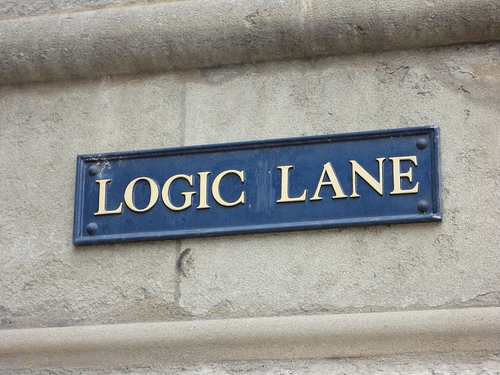 You will all be familiar with the reports that major Iraqi sites had been destroyed by looters and US troops (see the U Chicago OI’s “Lost Treasures from Iraq” site). Well, apparently that may not be quite true. Melik Kaylan reports for the Wall Street Journal:
You will all be familiar with the reports that major Iraqi sites had been destroyed by looters and US troops (see the U Chicago OI’s “Lost Treasures from Iraq” site). Well, apparently that may not be quite true. Melik Kaylan reports for the Wall Street Journal:
A recent mission to Iraq headed by top archaeologists from the U.S. and U.K. who specialize in Mesopotamia found that, contrary to received wisdom, southern Iraq’s most important historic sites — eight of them — had neither been seriously damaged nor looted after the American invasion. This, according to a report by staff writer Martin Bailey in the July issue of the Art Newspaper. The article has caused confusion, not to say consternation, among archaeologists and has been largely ignored by the mainstream press. Not surprising perhaps, since reports by experts blaming the U.S. for the postinvasion destruction of Iraq’s heritage have been regular fixtures of the news.
Kaylan points out one of the major concerns with all of this is not that archaeologists and other experts “got it wrong” regarding their estimates of the antiquities destroyed, but the possibility that scholars were in fact playing politics.
It’s a question that equally hangs over the deliberations of a meeting that took place recently in Dublin of the World Archeological Congress. The members reportedly considered a lengthy statement urging colleagues to refuse any military requests for a list of Iran’s sites that should be exempt from possible air strikes. Finally they settled for a shorter July 11 press release. Among other things, the final press release says that WAC “expresses strong opposition to aggressive military action . . . by the U.S. government, or by any other government.” The release quotes WAC’s president as saying that WAC “strongly opposed the war in Iraq and . . . we strongly oppose any war in Iran” and that “any differences with Iran should be resolved through peaceful and diplomatic means.”
If as scholars, archeologists take a priori public positions on political matters, what are we to make of the field-data they produce? How impartial can it be? And with their own credibility marred, who is there left as an impartial body of experts for the public to turn to?
The group that went out in the field is of good standing and the American, Prof. Stone, even assessed (using satellite imagery) before the trip that “nearly 10 miles of land had been looted and hundreds of thousands of objects had been taken.” They visited eight sites and reported that it did not appear that any damage or illegal digging had occurred more recently than 2003. Dr. Donny George, the former head of the Baghdad Museum, said that in fact much of the damage had occurred in the 1990’s.
The archaeologists’ mission to southern Iraq took place in early June. Besides Prof. Stone, the experts included John Curtis, head of the British Museum’s Middle East Department; Paul Collins, a Mesopotamia specialist at that museum; a top German expert; and Iraqi experts. It was conducted through the British military, which is in charge of the area, using a helicopter and armed escorts to visit the locations. They included such celebrated “cradle of civilization” sites as Ur, Eridu (the earliest Sumerian city), Warka (Sumerian Uruk), Larsa (a Babylonian city), Tell el-Ouelli (ancient Ubaid) and Tell el-Lahm (an Assyrian site).
It was a limited survey and questions remain (see the article) but I think this is a very good corrective (just good scholarship, really) and needs to be considered. This is in no way to argue for any war, but we are no better off when irrationality enters into any debate.
This article particularly struck a cord with me because after the US invaded Iraq and these reports were being made of antiquities being looted and destroyed I had dinner with a very prominent Episcopal preacher. (Whose name will remain unwritten. No need to cast aspersions, etc.) This person was horrified by the loss of the antiquities, absolutely appalled. For the sake of argument, I asked if it was not such a great loss (most of these relics had remained buried and “lost” to humanity for thousands of years) if it brought freedom and an end of persecution. [mfn]For the record, I was very conflicted about whether or not we should invade Iraq. There was and is no doubt in my mind of the very wicked things that Saddam was perpetrating on his people, the analogy with Hitler is not inappropriate. If we see a wrong as Christians should we not address it if we are able? Yet I also know that there are very real and challenging issues to be balanced, loss of life on all sides, diplomacy, etc.[/mfn] My point was simply isn’t human life worth more than any object, no matter how old. To my amazement this preacher whom I admire greatly tenaciously clung to the argument that this was “the greatest tragedy of the war.” I still shake my head at that. No thing is worth more than a human life.


